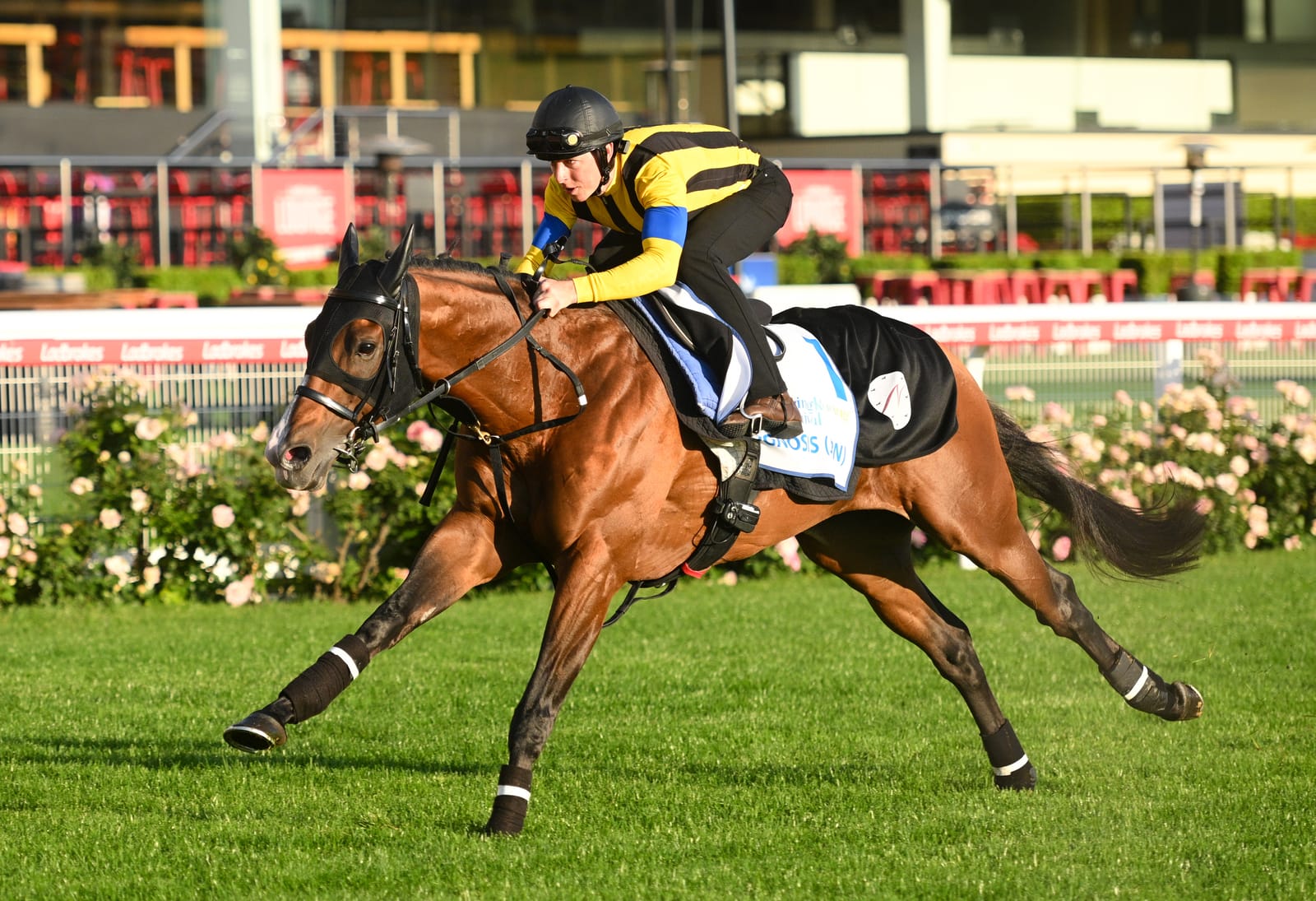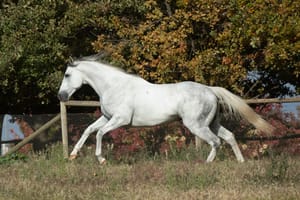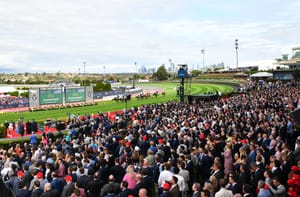The backstory of leading Cox Plate fancy Prognosis extends far beyond his home country of Japan to a humble chestnut mare, who found herself in the midst of a civil war in Libya, only to win a miraculous reprieve.
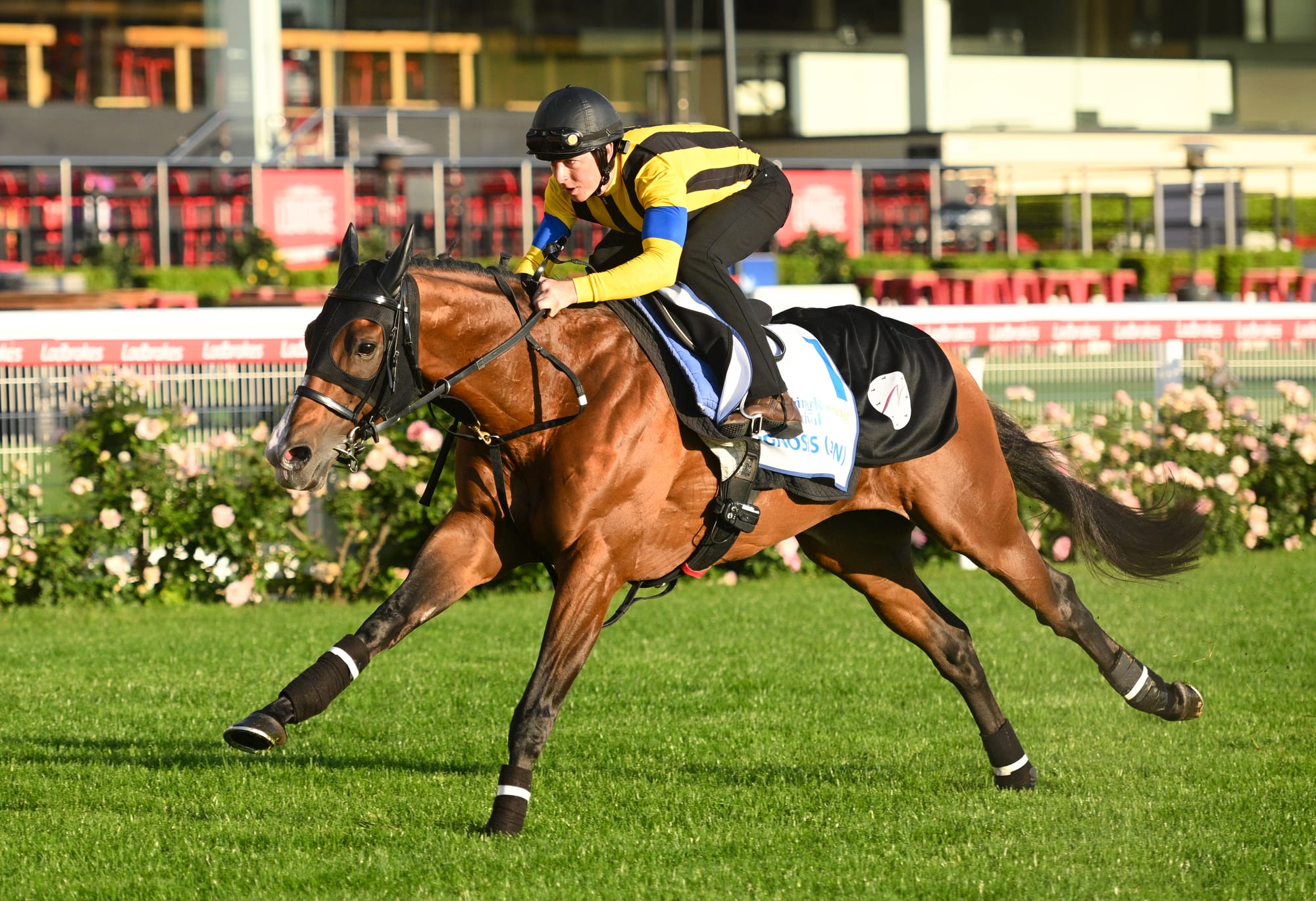
This story features extensive additional reporting from Adrian Cugnasse of Jour De Galop
It is 10 years since Adelaide created a new international dimension to the Cox Plate, winning the race for Aidan O’Brien, and since then raiders Lys Gracieux, State Of Rest and Romantic Warrior have added their names to a storied honour board of champions.
In an increasingly global era of racing, on Saturday Prognosis aims to become the second Japanese-bred winner of Australia’s greatest weight-for-age race. He is heavily favoured to do so.
The seven-year-old son of the legendary Deep Impact is no stranger to travel, having been to Hong Kong twice in the past 12 months, beaten by last year’s winner Romantic Warrior on two occasions.
His trainer Mitsu Nakauchida has never been scared to put his horses on a plane, be it to Dubai, the United Kingdom or Australia, with Danon Premium running third in the 2020 Queen Elizabeth Stakes.
Indeed, Nakauchida’s own story is one of international adventure.
He landed in Ireland as a 16-year-old looking for an equine education. He rode in amateur races in Great Britain and learned at the feet of legends such as Richard Hannon Sr and Sir Mark Prescott as well as with Bobby Frankel in the USA and Criquette Head-Maarek in France.
He would return home with a suitcase full of experience and life lessons. He has continued to travel and learn, while in 2021, he was crowned Japan’s champion trainer.
Mitsu would be enough for a feature in his own right, as would Damian Lane, the Bunbury-born jockey turned superstar in Australia and Japan, but there is another even more remarkable international aspect of the Prognosis story.
It involves his dam, Velda, a British-bred mare who found herself on her way to Libya, only to end up in Japan.
A granddaughter of Val D'Erica, who won multiple Group 1s in Italy for the famous Botti family, Velda was sold as a yearling in Milan in 2007 for a modest 11,000 euros, barely a third of the sale average.
Her racing career would be similarly low-key - a couple of wins at Milan before heading to stud in France. She had produced a couple of fillies by Orpen before being sent to Arqana’s December Breeding Sale in December 2012 along with her weanling colt by Dr Fong.
The colt fetched just 2500 euros, while Velda would be sold for even less. The 1500 euros on the docket was written down with ‘cash’ as a buyer.
A host of lower-end mares are purchased through French breeding sales each year to head to North Africa, be it Tunisia, Morocco or Libya. Trade across the Mediterranean is surprisingly brisk. Australian-bred stallion Scissor Kick was traded from France to Morocco before his son Giga Kick won the 2022 Everest.
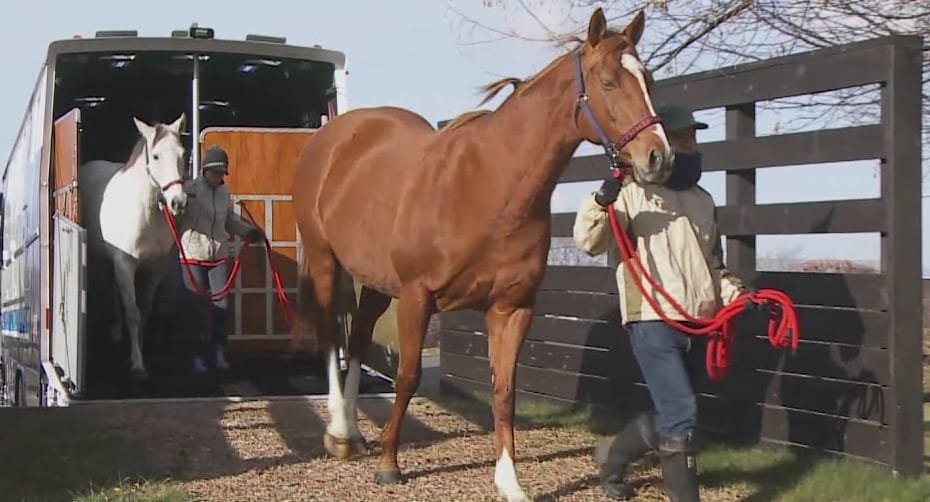
The Straight was intrigued by Velda's journey and contacted Adrien Cugnasse, a journalist with Jour de Galop in France.
Cugnasse tracked down the buyer of Velda, a man named Patrick Melloul, a breeder in Tunisia of both thoroughbreds and purebred Arabians.
It turned out that Velda’s appearance, rather than her pedigree, drew him to purchase her in the first place.
"Velda was a small chestnut mare, and I have a soft spot for chestnut horses. So, I took a chance and bought her for just €1,500. I wasn't particularly interested in a particular point of the pedigree at the time. I quickly brought her to Tunisia and then sold her to Libya,” Melloul said.
Libya was in quite a state of disruption at the time. Just over 12 months earlier, the long reign of Muammar Gaddafi had come to a bloody end and the country had endured a civil war, which cost an estimated 30,000 lives.
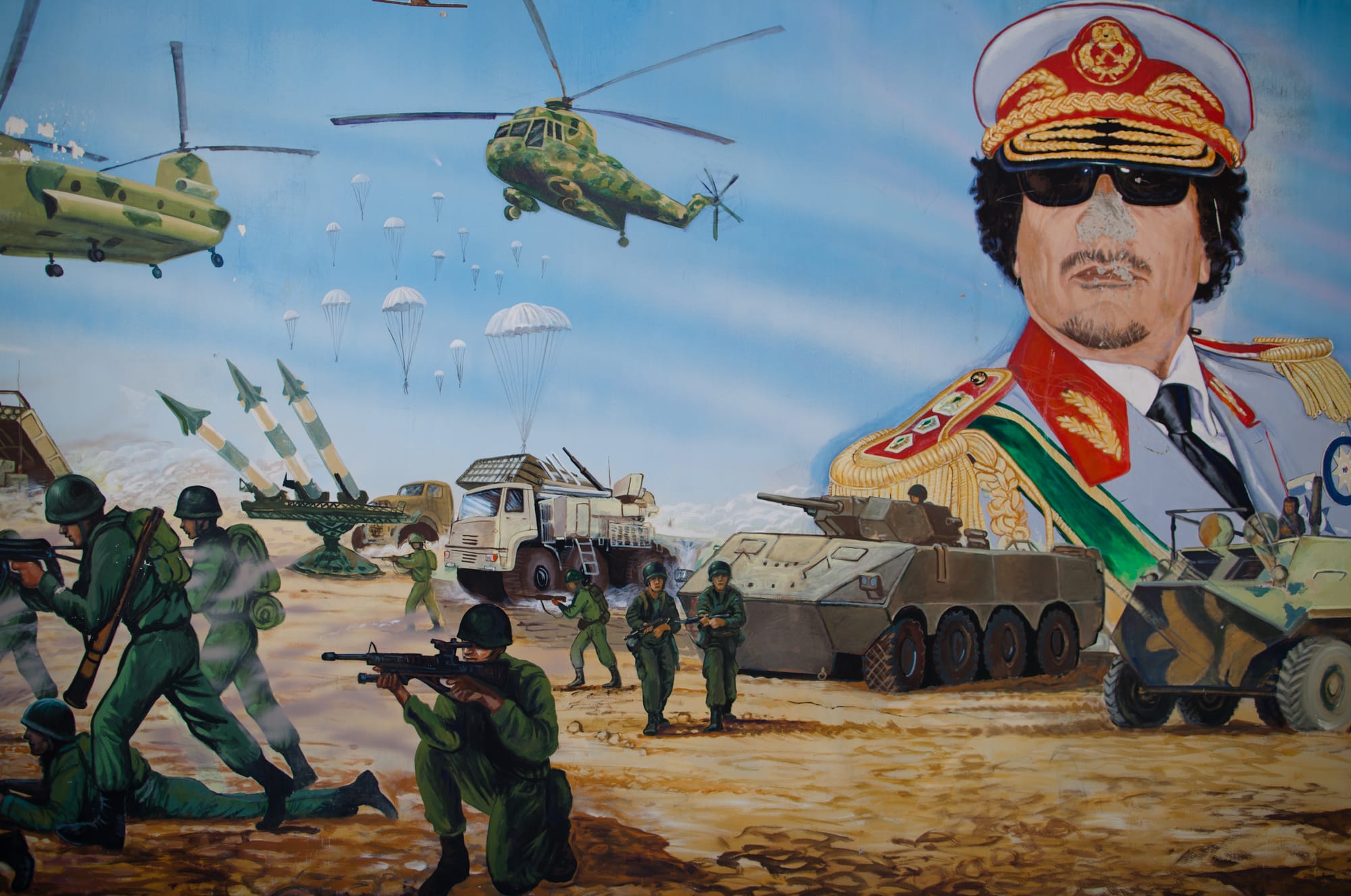
It wasn’t a particularly safe place for humans or horses. Later in 2020, Al Shaab Stud, Libya's largest, was raided and 60 horses were abducted, among them Australian-bred Churchill Downs, who was never found.
But less than 12 months after Velda was sold, her Orpen filly Vorda, a 9000 euro yearling purchase, emerged as a star European juvenile. She won a Group 2 at Maisons Laffitte and was then runner-up to No Nay Never in the Group 1 Prix Morny. Better was to come when she claimed the Group 1 Cheveley Park Stakes at Newmarket. She was sold to Mohammed bin Khalifa Al Thani.
A pedigree, dormant for two generations, had sprung back to life. The search was now on for Velda and Melloul was wise to the opportunity.
“When Vorda started to show real promise on the racetrack, I decided to buy her (Velda) back from Libya and sent her to France to be bred to Redoute's Choice. Redoute's Choice was a very popular stallion in France at the time,” Melloul said.
Cugnasse explains it isn’t unprecedented for a mare to be brought back from North Africa because of the performances of one of her progeny. This has happened with the dam of horses such as Group 1 winner The Grey Gatsby and jumps star Jonbon.
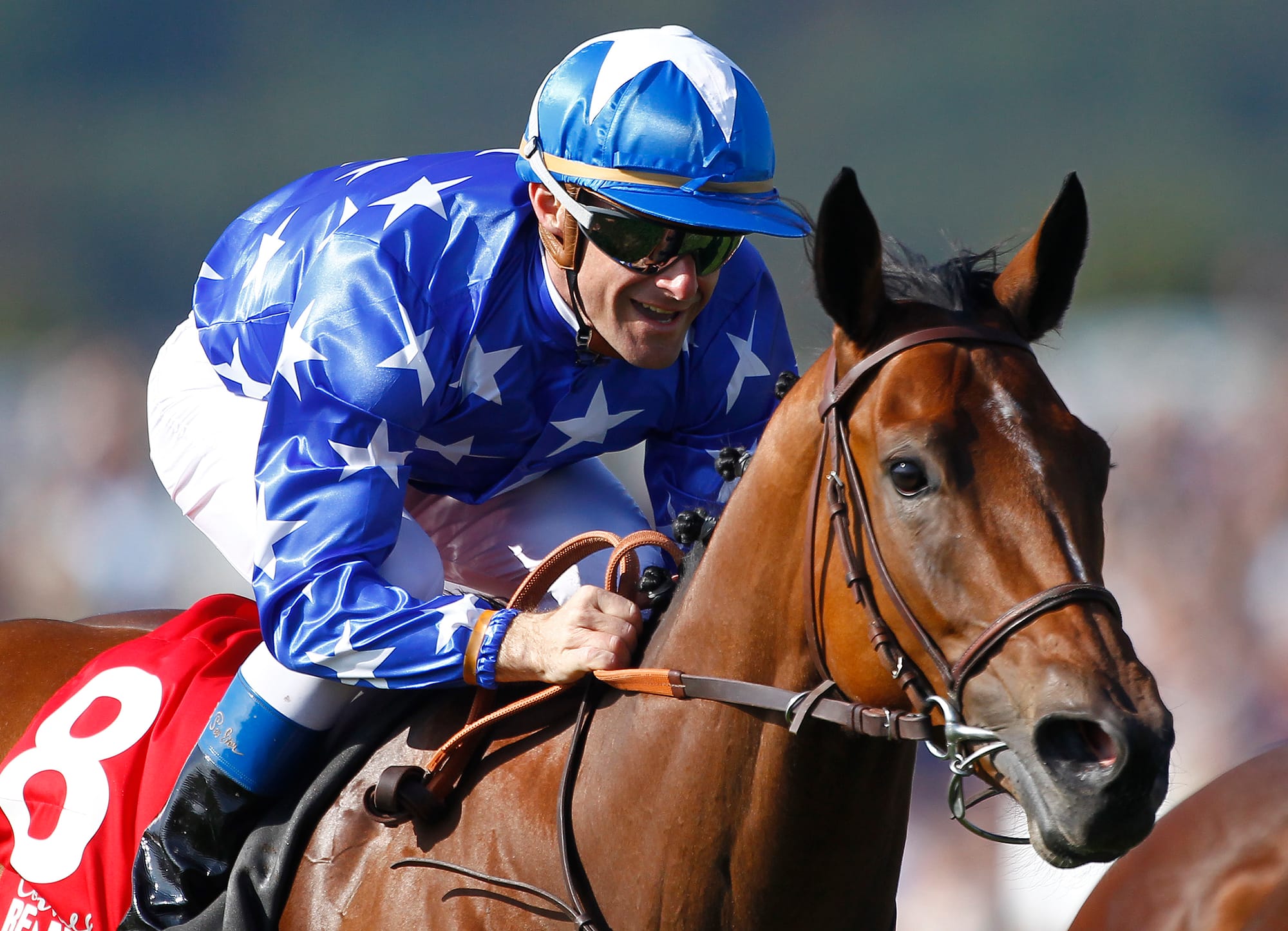
But what happened next was quite remarkable. Less than two years after she was headed to Libya, the now Group 1-producing mare found herself on the radar of Shadai Stud owner Teruya Yoshida.
Agent Patrick Barbe brokered the deal and she headed to Japan in late 2014 carrying a filly by Australian champion sire Redoute’s Choice. That filly, named Avior, won three races, one of just 15 Japanese winners for the late Arrowfield champion.
From a prospective mating with Arabian stallions in a volatile part of North Africa a few years prior, Velda was now being mated to Japanese superstar Deep Impact. It was her second visit to that stallion which produced Prognosis in 2018.
Velda died at Shadai Farm in 2022, ending a journey that began in Italy, took in France with side trips to Tunisia and Libya before her improbable journey to Japan. Of her eight foals, seven were winners. Vorda and Prognosis are her stakes winners.
Her legacy will be felt at Moonee Valley on Saturday when her son shoots for international glory and seeks to become the second of her progeny to win a Group 1.

